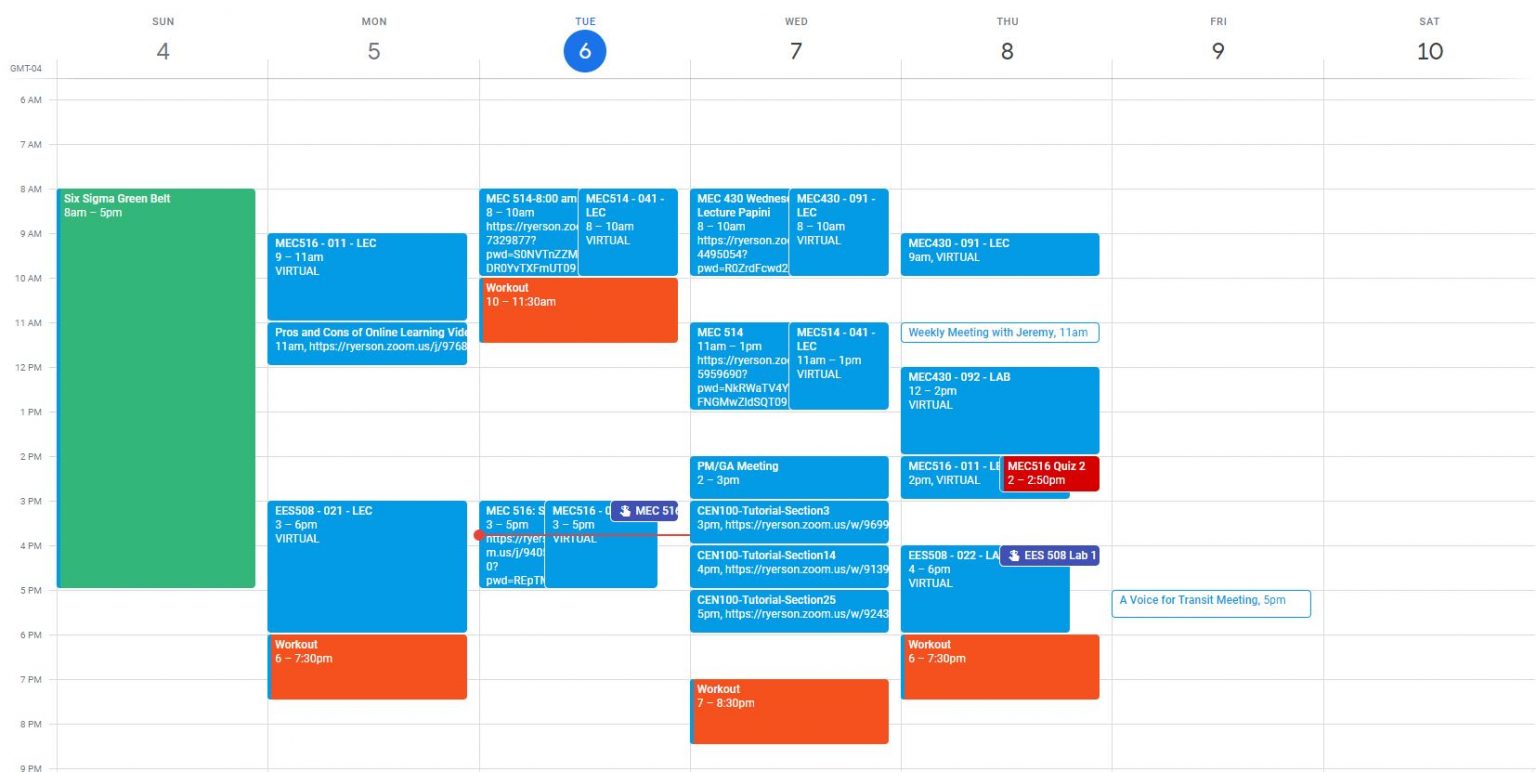How to Manage a Full Course Load

Going from four courses each semester in high school to five, six or even seven in university can be quite a jarring experience. While it may initially seem like an impossible task, it can be done by implementing the right strategies.
As an engineering student, it’s kind of a known fact that we have heavy course loads. At first, I thought the stress would swallow me alive, but fast forward four years and here I am still standing! So, here are five tips to help you manage a full course load:
1. Read ahead
Many of my professors post lecture notes before the actual lectures so students can come into the lectures with a better idea of what’s going on. Reading the content before the professor teaches it can actually make the lectures feel more like reviews rather than introductions to new topics. This can help you better retain information and study more effectively.
2. Allocate time to each of your classes
Dedicate a certain amount of time each week to each of your classes to do readings, complete homework and prepare for assessments. This will ensure that you don’t fall behind on any of your courses.
Understand that some classes will be harder than others and certain weeks will be busier, so don’t be super rigid with the allotted times.
3. Get organized

At Ryerson, your class schedule is automatically synced to your Google Calendar. But you should also consider adding on to it assignment deadlines, exam dates, study times and really anything! Having a visual aid will help you easily keep track of all your commitments.
Some people remember things better after writing them down on paper, so keeping an agenda is also an option. Personally, I prefer Google Calendar because an agenda cannot send me notifications.
4. Make use of gaps in your schedule
When adjusting your schedule during your enrolment period, try to get at least a one hour gap between every four hours of class. There’s only so much your brain can handle at once.
Use these gaps to eat, go to the gym, hang out with some dogs or do whatever else you need to do to recharge before your next class.
If you have a longer gap, then consider using some of it to study. That way, you can save yourself time on studying when you get home. I like to use this time to read ahead.
5. Take less courses
While this might seem counterintuitive to the point of this blog post, sometimes the best thing you can do is to reduce your course load. Extracurricular activities, work and other obligations on top of a heavy course load may cause you to spread yourself too thin. And why do that when you can potentially get higher grades and reduce your stress levels by redistributing to your course load. Consider taking a course in the spring/summer term if it is offered, or during a semester with a lighter course load.
I hope these tips help carry you through your courses!
— Jeremy
